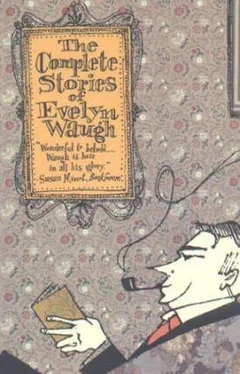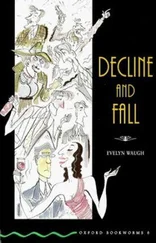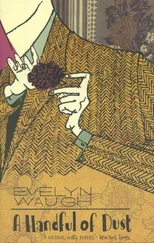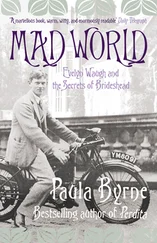Evelyn Waugh - The Complete Stories Of Evelyn Waugh
Здесь есть возможность читать онлайн «Evelyn Waugh - The Complete Stories Of Evelyn Waugh» весь текст электронной книги совершенно бесплатно (целиком полную версию без сокращений). В некоторых случаях можно слушать аудио, скачать через торрент в формате fb2 и присутствует краткое содержание. Год выпуска: 1998, ISBN: 1998, Жанр: Классическая проза, на английском языке. Описание произведения, (предисловие) а так же отзывы посетителей доступны на портале библиотеки ЛибКат.
- Название:The Complete Stories Of Evelyn Waugh
- Автор:
- Жанр:
- Год:1998
- ISBN:0-316-92546-2
- Рейтинг книги:3 / 5. Голосов: 1
-
Избранное:Добавить в избранное
- Отзывы:
-
Ваша оценка:
- 60
- 1
- 2
- 3
- 4
- 5
The Complete Stories Of Evelyn Waugh: краткое содержание, описание и аннотация
Предлагаем к чтению аннотацию, описание, краткое содержание или предисловие (зависит от того, что написал сам автор книги «The Complete Stories Of Evelyn Waugh»). Если вы не нашли необходимую информацию о книге — напишите в комментариях, мы постараемся отыскать её.
The Complete Stories Of Evelyn Waugh — читать онлайн бесплатно полную книгу (весь текст) целиком
Ниже представлен текст книги, разбитый по страницам. Система сохранения места последней прочитанной страницы, позволяет с удобством читать онлайн бесплатно книгу «The Complete Stories Of Evelyn Waugh», без необходимости каждый раз заново искать на чём Вы остановились. Поставьте закладку, и сможете в любой момент перейти на страницу, на которой закончили чтение.
Интервал:
Закладка:
What were they saying?
“D’you know, Henry, I think that that was rather silly of you? Why should I mind what some poor drunk says about me?”
What a sweet girl Imogen Quest was. So much easier than her father. Mrs. Hay was always rather afraid of Imogen’s father. She was afraid Henry was going to be like him. How charming she looks now. She cannot understand why all the boys aren’t in love with her. When Mrs. Hay was young, they would have been. None of Basil’s friends seemed quite the “marrying sort” somehow. Now if only Basil would marry someone like Imogen Quest…..
“But do you know, I think I’ve met Ernest Vaughan? Or at least someone pointed him out to me once. Didn’t you, Swithin?”
“Yes. You said you thought he was rather attractive.”
“Imogen!”
“My dear.”
“I think he is. Isn’t he short and dirty with masses of hair?”
“Always drunk.”
“Yes, I remember. I think he looked very charming. I want to meet him properly.”
“Imogen, you can’t, really . He is too awful.”
“Didn’t he do those pictures in Richard’s room? Richard, will you invite me to meet him one day?”
“No, Imogen, really I couldn’t.”
“Then someone must—Gabriel, you will, please . I insist on meeting him.”
Dear children, so young, so chic .
“Well, I think it’s perfectly beastly of you all. But I will meet him all the same. I’ll get Adam to arrange it.”
The table was ruined.
“Edwards, I think it’s almost fine enough to have coffee outside.”
A HOUSE OF GENTLEFOLKS
I
I arrived at Vanburgh at five to one. It was raining hard by now and the dreary little station yard was empty except for a deserted and draughty-looking taxi. They might have sent a car for me.
How far was it to Stayle? About three miles, the ticket collector told me. Which part of Stayle might I be wanting? The Duke’s? That was a good mile the other side of the village.
They really might have sent a car.
With a little difficulty I found the driver of the taxi, a sulky and scorbutic young man who may well have been the bully of some long-forgotten school story. It was some consolation to feel that he must be getting wetter than I. It was a beastly drive.
After the crossroads at Stayle we reached what were obviously the walls of the park, interminable and dilapidated walls that stretched on past corners and curves with leafless trees dripping on to their dingy masonry. At last they were broken by lodges and gates, four gates and three lodges, and through the ironwork I could see a great sweep of ill-kept drive.
But the gates were shut and padlocked and most of the windows in the lodges were broken.
“There are some more gates further on,” said the school bully, “and beyond them, and beyond them again. I suppose they must get in and out somehow, sometimes.”
At last we found a white wooden gate and a track which led through some farm buildings into the main drive. The park land on either side was railed off and no doubt let out to pasture. One very dirty sheep had strayed on to the drive and stumbled off in alarm at our approach, continually looking over its shoulder and then starting away again until we overtook it. Last of all the house came in sight, spreading out prodigiously in all directions.
The man demanded eight shillings for the fare. I gave it to him and rang the bell.
After some delay an old man opened the door to me.
“Mr. Vaughan,” I said. “I think his Grace is expecting me to luncheon.”
“Yes; will you come in, please?” and I was just handing him my hat when he added: “I am the Duke of Vanburgh. I hope you will forgive my opening the door myself. The butler is in bed today—he suffers terribly in his back during the winter, and both my footmen have been killed in the war.” Have been killed —the words haunted me incessantly throughout the next few hours and for days to come. That desolating perfect tense, after ten years at least, probably more… Miss Stein and the continuous present; the Duke of Vanburgh and the continuous perfect passive…..
I was unprepared for the room to which he led me. Only once before, at the age of twelve, had I been to a ducal house, and besides the fruit garden, my chief memory of that visit was one of intense cold and of running upstairs through endless passages to get my mother a fur to wear round her shoulders after dinner. It is true that that was in Scotland, but still I was quite unprepared for the overpowering heat that met us as the Duke opened the door. The double windows were tight shut and a large coal fire burned brightly in the round Victorian grate. The air was heavy with the smell of chrysanthemums, there was a gilt clock under a glass case on the chimneypiece and everywhere in the room stiff little assemblages of china and bric-a-brac. One might expect to find such a room in Lancaster Gate or Elm Park Gardens where the widow of some provincial knight knits away her days among trusted servants. In front of the fire sat an old lady, eating an apple.
“My dear, this is Mr. Vaughan, who is going to take Stayle abroad—my sister, Lady Emily. Mr. Vaughan has just driven down from London in his motor.”
“No,” I said, “I came by train—the twelve fifty-five.”
“Wasn’t that very expensive?” said Lady Emily.
Perhaps I ought here to explain the reason for my visit. As I have said, I am not at all in the habit of moving in these exalted circles, but I have a rather grand godmother who shows a sporadic interest in my affairs. I had just come down from Oxford, and was very much at a loose end when she learned unexpectedly that the Duke of Vanburgh was in need of a tutor to take his grandson and heir abroad—a youth called the Marquess of Stayle, eighteen years old. It had seemed a tolerable way in which to spend the next six months, and accordingly the thing had been arranged. I was here to fetch away my charge and start for the Continent with him next day.
“Did you say you came by train?” said the Duke.
“By the twelve fifty-five.”
“But you said you were coming by motor.”
“No, really, I can’t have said that. For one thing I haven’t got a motor.”
“But if you hadn’t said that, I should have sent Byng to meet you. Byng didn’t meet you, did he?”
“No,” I said, “he did not.”
“Well, there you see.”
Lady Emily put down the core of her apple and said very suddenly:
“Your father used to live over at Oakshott. I knew him quite well. Shocking bad on a horse.”
“No, that was my uncle Hugh. My father was in India almost all his life. He died there.”
“Oh, I don’t think he can have done that,” said Lady Emily; “I don’t believe he even went there—did he, Charles?”
“Who? what?”
“Hugh Vaughan never went to India, did he?”
“No, no, of course not. He sold Oakshott and went to live in Hampshire somewhere. He never went to India in his life.”
At this moment another old lady, almost indistinguishable from Lady Emily, came into the room.
“This is Mr. Vaughan, my dear. You remember his father at Oakshott, don’t you? He’s going to take Stayle abroad—my sister, Lady Gertrude.”
Lady Gertrude smiled brightly and took my hand.
“Now I knew there was someone coming to luncheon, and then I saw Byng carrying in the vegetables a quarter of an hour ago. I thought, now he ought to be at Vanburgh meeting the train.”
“No, no, dear,” said Lady Emily. “Mr. Vaughan came down by motor.”
“Oh, that’s a good thing. I thought he said he was coming by train.”
Читать дальшеИнтервал:
Закладка:
Похожие книги на «The Complete Stories Of Evelyn Waugh»
Представляем Вашему вниманию похожие книги на «The Complete Stories Of Evelyn Waugh» списком для выбора. Мы отобрали схожую по названию и смыслу литературу в надежде предоставить читателям больше вариантов отыскать новые, интересные, ещё непрочитанные произведения.
Обсуждение, отзывы о книге «The Complete Stories Of Evelyn Waugh» и просто собственные мнения читателей. Оставьте ваши комментарии, напишите, что Вы думаете о произведении, его смысле или главных героях. Укажите что конкретно понравилось, а что нет, и почему Вы так считаете.












